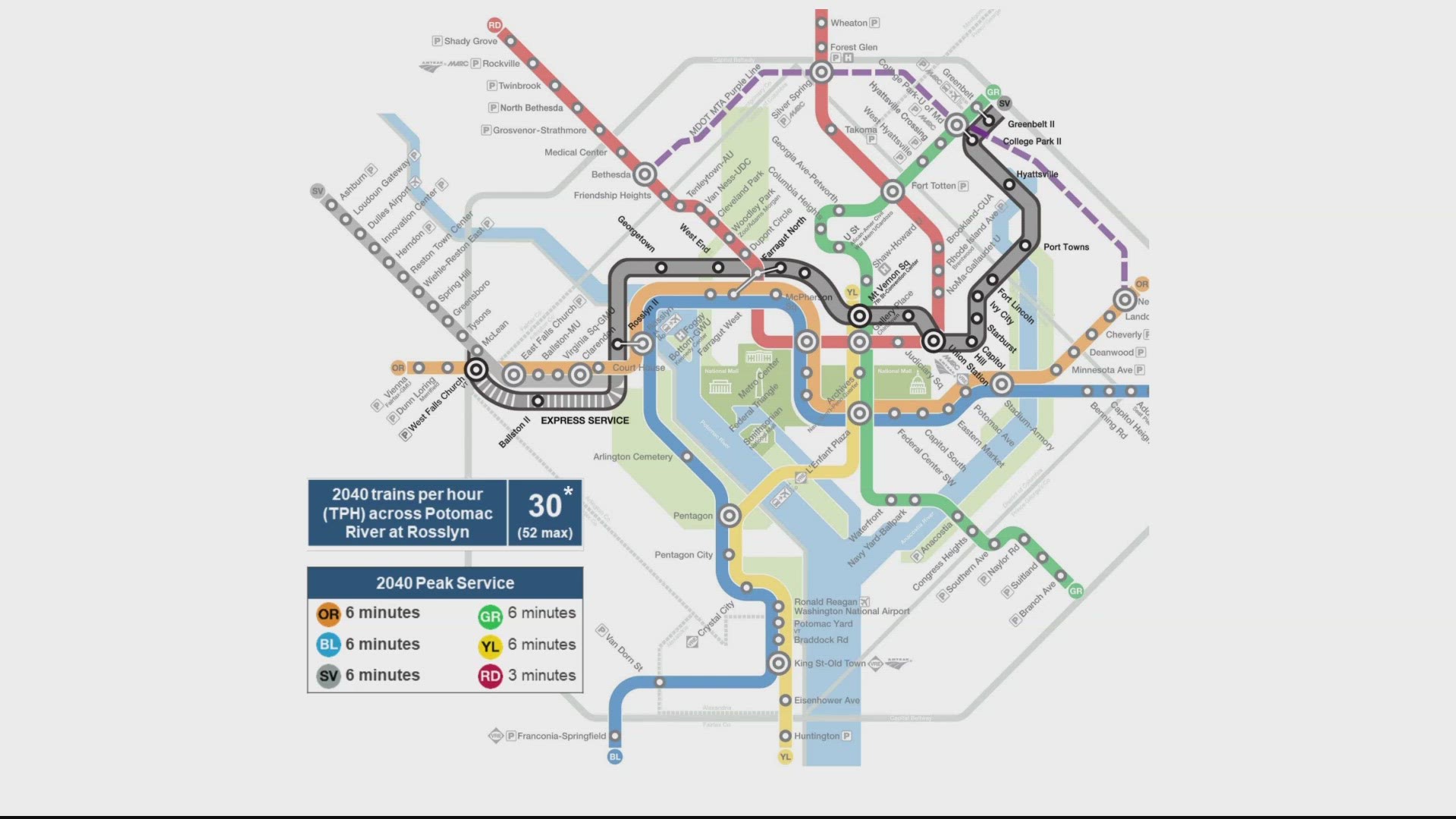WASHINGTON — How does a Metro stop in Georgetown sound? What about National Harbor?
Well, for the first time, Metro is showing us what adding those two stops would look like.
According to WMATA, population and jobs along the Blue, Orange, and Silver lines are projected to grow more than 30% by 2040.
That's why they're looking at new ways to deal with future overcrowding.
Some of those proposed solutions involve adding Metro Service to Georgetown and National Harbor.
So here's what that could look like on the Blue Line.
It would basically turn into a loop, running from Rosslyn to new stops in Georgetown and all the way to National Harbor.
This proposal would connect the Farragut North and Farragut West Stations.
Right now it's the agency's top recommendation.
Another option is expanding the Silver Line. Under that proposal, the Silver Line would run north from Rosslyn to Georgetown and Union Station.
It would also stop in Capitol Hill before crossing the Anacostia and ending in Greenbelt.
The added services might sound great, but you're probably asking how much this all costs.
If Metro goes with the Silver Line expansion, it'll likely cost between $35-40 billion.
The Blue Line expansion price tag is between $30-35 billion.
But just last month, Metro painted a bleak picture of its financial future, saying it'll be short $750 million by 2025.
“The region that we know today, in my opinion, does not exist with these cuts. So anyone that doesn't use Metro – that drives a car – their life went to total misery with traffic. Everyone that relies on Metro will not be able to rely on it in the future. If you have apartments or development around a station, it's going to go drastically impacted. Our environmental conditions are going to get significantly worse and on and on," Metro General Manager and Chief Executive Officer Randy Clarke said last month. “So, I think we were talking about service because it's the only tool we. It's a blunt instrument for us. We don't have our own dedicated revenue source. We're not a taxing authority. So this is the one kind of tool we're left.”
In its new study, WMATA did not specify where the money for these potential projects would come from.
Keep in mind, even if one of those projects does happen, it'll likely be a long way off.
Metro plans to discuss the proposals with stakeholder committees later this fall.
There's no timetable for when they might make a final decision.

